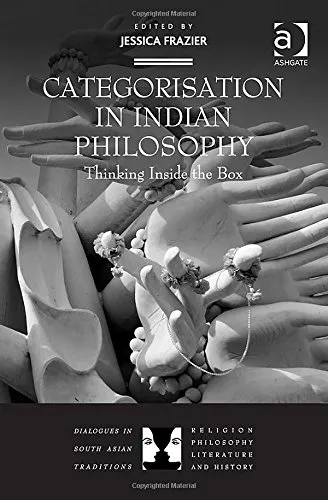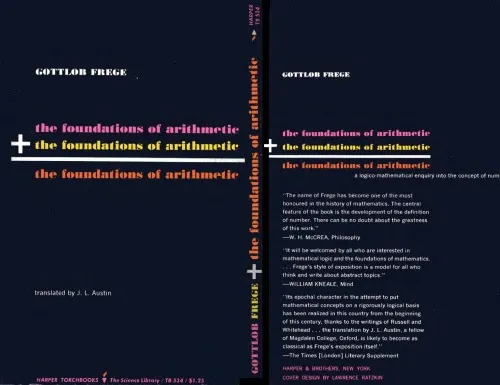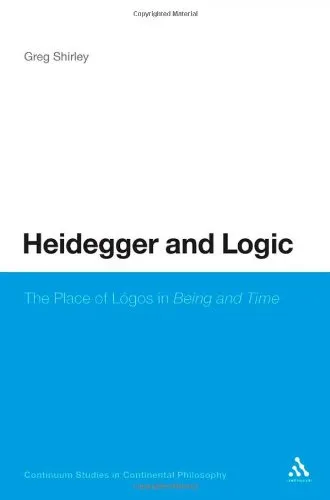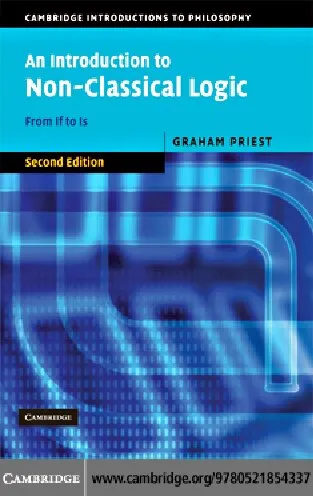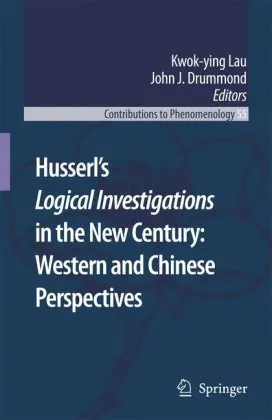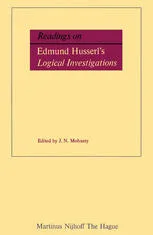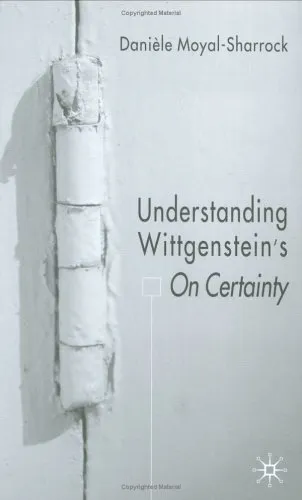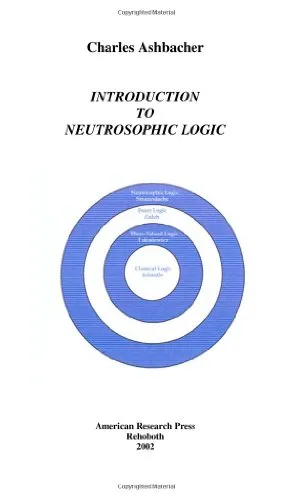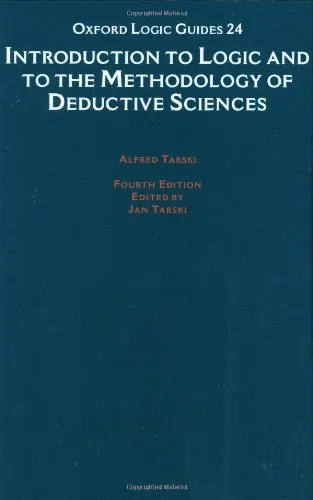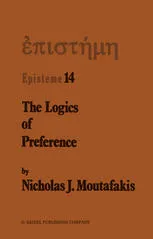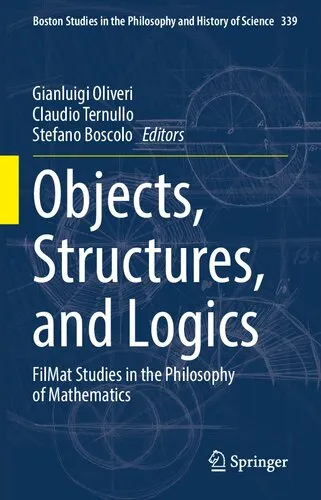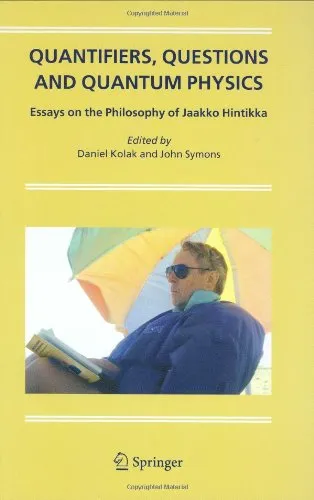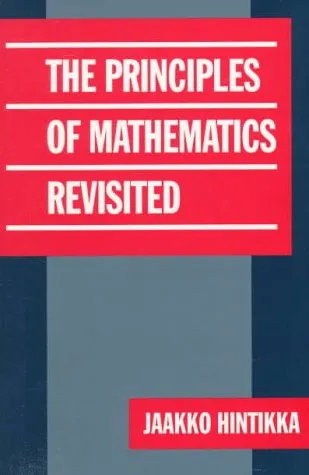Categorisation in Indian Philosophy: Thinking Inside the Box
4.5
Reviews from our users

You Can Ask your questions from this book's AI after Login
Each download or ask from book AI costs 2 points. To earn more free points, please visit the Points Guide Page and complete some valuable actions.Related Refrences:
Introduction to 'Categorisation in Indian Philosophy: Thinking Inside the Box'
By Jessica Frazier
Categorisation is one of the most fundamental practices of human thought. It helps us structure the complex world around us, guiding everything from our language to our understanding of reality itself. In 'Categorisation in Indian Philosophy: Thinking Inside the Box', Jessica Frazier takes readers on a profound intellectual journey through the philosophical traditions of India, exploring how ancient thinkers conceptualised the world and its myriad forms. This book sheds light on the shared human instinct to categorise, while honouring the unique methodologies and insights that Indian philosophy provides.
Frazier invites readers to think critically about the "boxes" we impose on the world. How do we map the chaos of reality into order? What principles guide us in arranging entities into categories? And perhaps most intriguingly, what happens when our categories cease to work? By addressing such questions, this book reveals both the creative power and the limitations of categorisation systems, ranging from poetic metaphors to rigorous logical frameworks.
Detailed Summary of the Book
Jessica Frazier divides the book into several thematic explorations. Each chapter examines categorisation as a philosophical tool, tracing its development in Indian traditions such as Nyāya, Sāṃkhya, Vedānta, and Buddhism. She not only focuses on the systematic and formal categorisations used in logic and metaphysics but also delves into more dynamic conceptions of reality expressed through mythology and poetry.
The chapters uncover how Indian philosophers wrestled with paradoxes of existence, unity, and multiplicity. For instance, the Sāṃkhya system's dualistic framework categorises reality into purusha (consciousness) and prakriti (matter), while the Buddhist theory of skandhas (aggregates) deconstructs human existence into ever-shifting elements. The book meticulously explains these intricate systems, demonstrating how categorisation helped philosophers handle vast and abstract concepts.
Frazier also draws attention to the creative, almost artistic, side of categorisation in Indian thought. Taking mythological narratives as examples, she highlights how Indian thinkers framed radically different world-views while implying larger truths about existence. Through this harmonious blend of systematic and intuitive modes of thought, the Indian traditions reveal new possibilities for shaping human ideas.
Key Takeaways
- The act of categorisation is not merely a logical exercise but a creative and philosophical enterprise.
- Indian philosophy provides a plethora of categorisation systems, ranging from dualistic paradigms to fluid, deconstructed views of reality.
- Classifications are shaped by cultural, metaphysical, and spiritual aspirations, revealing the values embedded within them.
- A study of Indian thought inspires us to critically evaluate our own categories and their usefulness in understanding the complexities of life.
- Thinking "inside the box" is not inherently limiting; rather, it can be a tool for insight and innovation when viewed through the right lens.
Famous Quotes from the Book
"Every wall we build to structure our world is also a window, revealing something about ourselves as much as it frames the view of what lies outside."
"To categorise is to create order, but it is also to risk closing off possibilities. Indian philosophers remind us that true wisdom lies in the balance between the two."
"By exploring the ways our ancestors categorised existence, we learn not just what they thought of the world, but who they were."
Why This Book Matters
In the modern age, categorisation remains central to disciplines as diverse as science, technology, literature, and philosophy. Yet our methods are often taken for granted. Jessica Frazier’s book offers a much-needed examination of categorisation through the lens of Indian philosophy, providing both historical insight and contemporary relevance. By exploring the philosophical underpinnings of organisation and classification, she challenges readers to rethink their own assumptions about how we divide and define the world.
This book is particularly valuable for scholars of philosophy, cultural studies, and history, but it also appeals to anyone curious about the intellectual achievements of ancient India. We live in an era of data and systems, and Frazier’s deep exploration reminds us of the human element in everything we categorise and interpret. A true gem for thinkers, researchers, and the philosophically inclined, 'Categorisation in Indian Philosophy: Thinking Inside the Box' is a work that inspires introspection and intellectual growth.
Free Direct Download
You Can Download this book after Login
Accessing books through legal platforms and public libraries not only supports the rights of authors and publishers but also contributes to the sustainability of reading culture. Before downloading, please take a moment to consider these options.
Find this book on other platforms:
WorldCat helps you find books in libraries worldwide.
See ratings, reviews, and discussions on Goodreads.
Find and buy rare or used books on AbeBooks.
